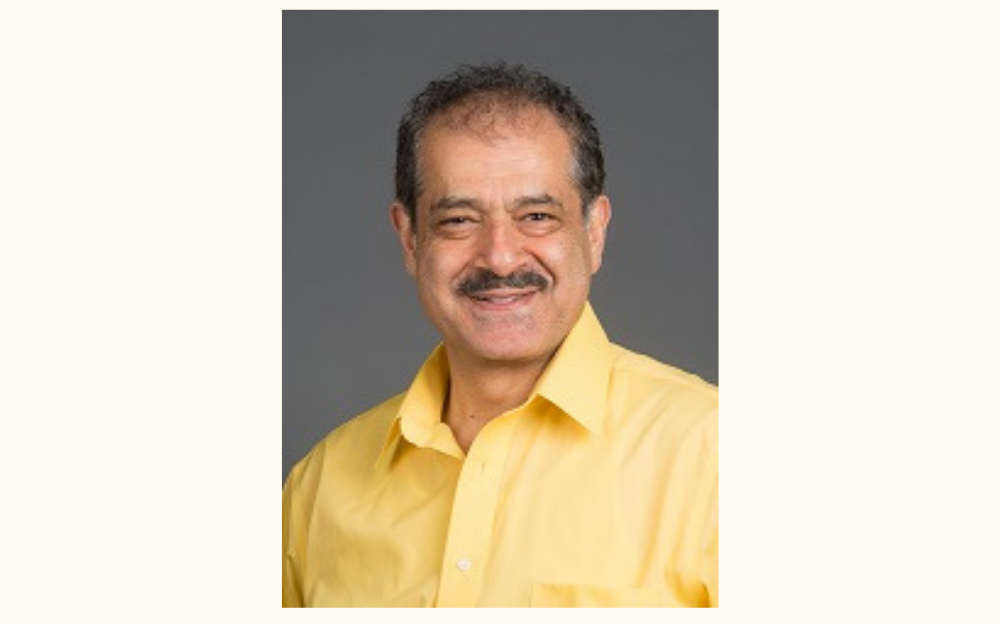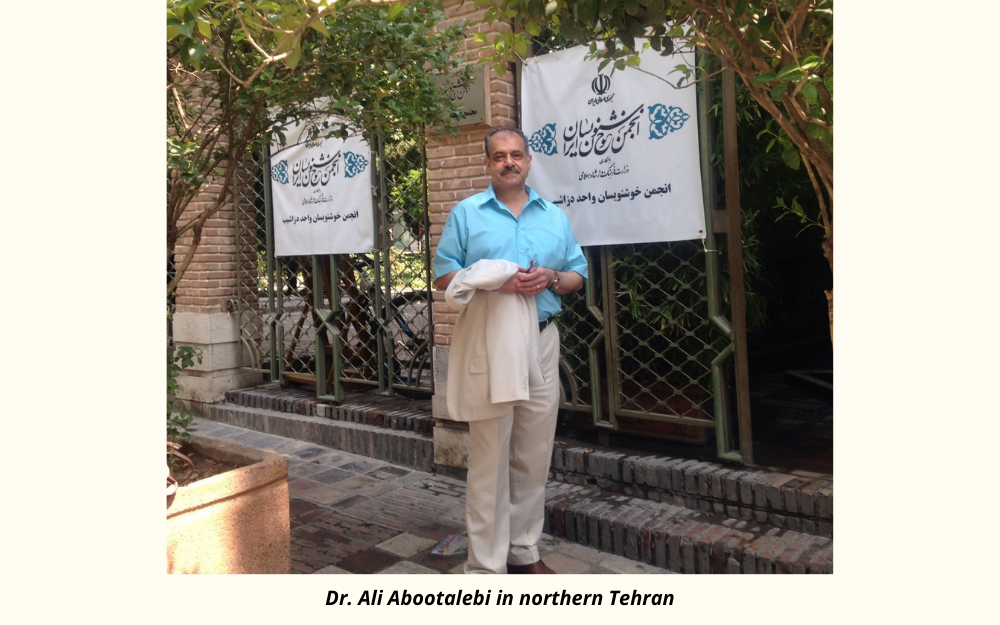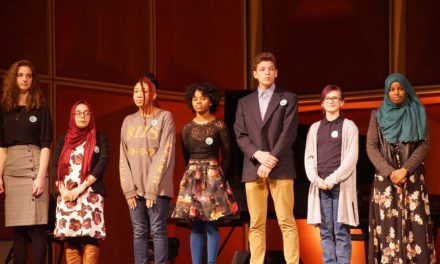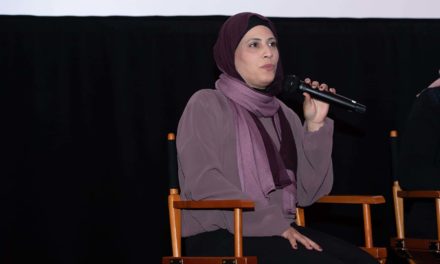As President Joe Biden’s administration is taking steps to revive the Iran nuclear agreement, a University of Wisconsin Middle East expert says engaging Iran is the right move but not for the obvious reason.
“The Iranian nuclear program is only a small part of the problem (in U.S. – Iranian relations), said Dr. Ali Abootalebi in an interview this week with the Wisconsin Muslim Journal.”
Dr. Abootalebi is a professor of Middle Eastern and global politics at the University of Wisconsin-Eau Claire. He is the author of Islam and democracy: State-Society Relations in Developing Countries, 1980-1994 (2000), co-author of Introduction to World Politics: Prospects and Challenges for the United States and author of more than 50 articles on Iran, Arab politics, civil society, democracy and U.S. foreign policy. He is also a member of the Wisconsin Institute for Peace and Conflict Studies.
“Many of us, including myself, say the main problem is not the Iranian nuclear program,” Abootalebi said. “The larger problem is the fact that Iran is challenging U.S. dominance in the region and that U.S. – Iranian relations remain conflictual 42 years after the Iranian revolution.”
In addition to doing extensive research, Abootalebi has visited Iran annually until the COVID-19 pandemic limited travel a year ago. He shared his views with WMJ on U.S. – Iranian relations, including current nuclear deal discussions, potential benefits of engagement and our responsibility as U.S. citizens.
Reviving the nuclear agreement
Recent news reports summarize the current state of negotiations between the U.S. and Iran as follows:
President Joe Biden’s administration announced Thursday it is ready to join talks with Iran and other countries to pursue a return to the 2015 Joint Comprehensive Plan of Action on the Iran nuclear program (JCPOA), a deal Biden’s predecessor withdrew from in 2018. President Biden then declared Friday to the Munich Security Conference that “America is back” and named the Iran nuclear deal as a priority for America and its transatlantic allies.
The new administration made significant overtures to Iran in its first weeks in office, but the U.S. and Iran have been stuck in a stalemate on who makes the first move. The Biden administration wants Iran to scale back its nuclear program in line with the JCPOA before the Trump-era sanctions are lifted; Tehran says it will not curb its activity before it is given sanctions relief, according to the Associated Press.
Iran, however, reached a “temporary bilateral technical understanding” allowing the International Atomic Agency, the United Nation’s watchdog group, access to Iran’s nuclear facilities for three months to continue to monitor for only U.N.-sanctioned enrichment activities, salvaging the situation, for now, the AP report said.
Iranian Foreign Minister Javad Zarif has said President Biden’s moves are not enough to revive the JCPOA.
Dr. Abootalebi weighs in
“The campaign rhetoric is there that America’s back. But I’m not happy with what President Biden has done so far.
“Zarif’s perspective is logical. President Trump fundamentally changed the goalposts, putting a lot more pressure on Iran. What the Biden administration is doing now is he is saying he will reduce some of the pressure and call it a concession. You don’t play hardball, take two steps forward and one step backward, and call it a concession. That is not a concession and I assure you that is the view from Tehran.
“Inside Iran itself, there are divisions in government between the parliament and executive office as well as the top leadership. They are split on whether to negotiate and why.” At the same time, Iran is facing multiple threats.
In an article in the independent news publication Informed Comment, Abootalebi explained, “Iran’s harsh rhetoric in foreign policy is not a reflection of its actual capabilities and intention for open aggression; it is a defensive posture stemming from serious external threats to its regime survival and national sovereignty.”
“I don’t think anybody in Iran wants to see a rebellion and the prospect of the country falling apart or foreign intervention, ,” ”Dr. Abootalebi said.” And there are enough enemies who want that – from the Saudis to the Israelis to those wanting Kurdish independence.
“But the Iranian people do want change. They want more freedom. My hope is they will find a way.”
The impact of sanctions on Iran
“The sanctions are very severe. The major sanctions are on banking, oil, shipping and aviation.
“Iran is a typical developing country. They rely heavily on imports and on oil exports. That formula means that if they cannot sell their oil because of sanctions, they cannot buy imports. Even if Iran can get access to products, they cannot pay for them because SWIFT, the international banking system for transactions, is controlled by the U.S.
“The sanctions are gambling with people’s lives, as they hamper their ability to import coronavirus vaccines. Iran has the worst COVID-19 situation in the Middle East. There is a big faction in Iran who calls American sanctions ‘economic terrorism,’” he said.

“There was a suggestion to move forward simultaneously. But even if Iran would not do that, what would be wrong with America saying, we will lift banking restrictions and oil restrictions, but not totally? We could keep sanctions in certain areas.”
Sanctions have led to maintaining multiple exchange rates, which in turn spurs corruption and a huge black market, he noted.
“To make matters worse, there are people connected to the government who buy and sell dollars on the black market by the tens of millions. Therefore, the price of the dollar always goes up and that means more inflation.
“The Iranian people have suffered from lack of access to what they need, extremely higher prices and a fundamentally lower standard of living. It started to get better in 2015 and 2016, after JCPOA agreement. After we withdrew in 2018, it went back down.
“Iran says America has done about a trillion dollars-worth of damage to the Iranian economy. Even if the number is exaggerated, it is true Iran has been damaged drastically by the situation.
“Iran has tried to bypass sanctions by contracting private shippers to export oil that, out of desperation, they are exporting all the way to Venezuela in exchange for gold. The U.S. has already confiscated two ships they say belong to Iran.”
Challenges to U.S. dominance in the Middle East
What is even a bigger issue for the U.S. is America’s waning influence in the region, Abootalebi said.
“In the Cold War and until now, we have military bases with army, navy and aerial presence to support the Gulf states. Some may even say Saudi Arabia is our gas station and its bodyguards,” Abootalebi said, describing the U.S. presence in the Middle East. “And, of course, there is Israel (to protect).”
America’s role in the region is being threatened by Iran, Russia and China. “We know China is expanding and investing heavily in Pakistan. It is also developing an economic and security partnership with Iran that would clear the way for billions of dollars of Chinese investments in energy, banking, telecommunications, ports, railways and other sectors. A $400 billion deal is materializing as part of a proposed 25-year ‘comprehensive strategic partnership’ that also includes deepening military cooperation.
“At the same time, Russia has consolidated its position in Syria and its relationship with Iran. We will be challenged by Iran, Russia and China in the Persian Gulf region.”
Some have argued that the Trump administration’s policies drove China and Iran together, blowing a hole in Trump’s “maximum pressure” campaign, Abootalebi noted in an article in Informed Comment.
Engagement brings hope
The opportunity to engage Iran promises more benefits than just controlling nuclear armament, Abootalebi said.
He offered U.S.-China relations as a comparison. It has been more than 40 years since the U.S. and China opened diplomatic relations. Still, “China has not opened politically. But China has lifted, according to their numbers, about 700 million people from poverty. That is a lot of people who have benefitted from this. And that is a good thing for the global community.
“By the same logic, if we engage Iran, it would allow Iran to blossom. Iran is a country of almost 85 million people. There are a lot of young people in Iran, very talented people. (As they become empowered), the government has two ways ahead of them – reform and continue or get out.”
Few reasons for optimism
Even with that positive vision, Abootalebi admitted he is not hopeful. “I’m more of a cynical guy, not swept away by how it should be. I look at wealth and interest and how that dictates behavior to a large extent.
“We American speak from both sides of our mouth. We say we want human rights and democracy, and then we sell arms to support authoritarian regimes; our relationships more heavily favor the Israeli perspective. That is not hidden. You know it, I know it, people in the Middle East know it.
“There is no indication that it is changing. If you look at the Biden administration, he surrounded himself with pro-Israeli personalities. When it comes to Iran, they see that. Also they see the rapprochement of Saudi Arabia and the United Arab Emirates with Israel, and the fact that Palestinians have been undermined for so many decades. So, the Iranians are looking at us with great suspicion.
“The positive things we have said are that the Yemen war should stop and the Houthis are not terrorists. These are good moves. Also, a bit of a soft criticism of the Saudi leadership has come out.
“There are things Biden can do, but I haven’t seen much of it. If Biden were serious, he would come strongly and say we would not accept human rights violations in Saudi Arabia and we are going to hold on arms sales transfers. He would tell the Israelis to stop settlement activities because we still see U.N. Security Council Resolution 242 of 1967 as the basic solution to the Palestinian-Israeli problem. But there is no one talking about the Palestinian side or about human rights in a serious manner, including human rights violations inside Iran.”
Inform yourself to make a difference
When asked what we as American citizens should do, Abootalebi, said the answer is obvious: “Educate yourself. At least, Americans should appreciate that foreign affairs impact our lives on a daily basis.”
The problem is Americans “are so pre-occupied with our own lives that we can’t see beyond them,” Abootalebi said. He doesn’t think we are individually to blame. “There is so much insecurity. We don’t have job security or health security. We face high tuitions for education; we are bombarded by markets. Fiscal policies matter. All of this prevents us from being more outward-looking.”













